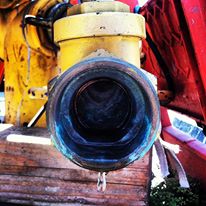by Teryn Bonime www.teryndowntheroad.com
Like a computer crash, it’s not IF your water heater will break, but WHEN. A home warranty protects you when bad things happen to the systems of your home. Drains block up, garbage disposal goes on the fritz, hot tub won’t heat up, etc. Calling in a plumber is expensive! At $80-$120 an hour, the cost of a problem quickly adds up. With a home warranty, you pay one price $60-$85 for the entire service AND parts!
I’d say about 50% of my buyers experience some sort of issue within the first 90 days of move-in. (Every home my husband and I have purchased has had drainage issues within the first month.) Maybe you are buying a house from a husband and wife and you’re moving in your five kids. The house systems are going to be immediately impacted!
We have had a policy on our rental unit for the past 18 years. (As a realtor, my renewal rate never goes up. It just keeps with the current “new” rate.) With a long-distance rental with an oil tank that likes to blow out its flame each winter, we certainly have come out ahead! (A new dishwasher, water heater and hot tub removal too!) Our tenants make the call, the payment is automatic and everyone is happy! (Well, once the heat goes on again, that is!)
Here are few things to know.
1. The number of service calls you make each year will impact your annual renewal price.
2. Most programs having “appliance buying” programs which lets you buy appliances at discount.
3. If you have a rental property or a granny flat on your lot, you’ll need another policy.
4. Some home warranties can only be purchased during escrow.
5. You have so many days after purchasing a policy to upgrade.
There are quite a few out there but here are a few companies to consider:
American Home Shield (popular in Portland, OR)
First American Home Warranty (popular in Ventura, CA)
Sensible Home Warranty
Home Warranty of America
2-10 Home Buyers Warranty
Old Republic Home Warranty (popular in Palm Springs, CA)
Fidelity National Home Warranty
HSA Home Warranty
“Drippin” photo courtesy of Dillon Scheps
Update! After reading my blog, Gwen Gallagher, President of Old Republic Home Protection sent me this note:
Thank you for the informative piece on your blog concerning home warranties and for mentioning Old Republic Home Protection. I appreciate the positive, informed, and factual way in which you write; your experience with the industry is obvious.
While I found your post to be accurately stated, I did notice one item that I’d like to bring to your attention. At Old Republic Home Protection—and most of the major companies that I’m aware of— renewal rates are not based on the number of service requests placed each year. Instead, renewal rates are based on statewide service costs. We analyze the cost to provide service by state and adjust renewal prices accordingly—both upward and downward.
As you know, the price you’ll pay during a real estate transaction is generally lower because the home will go through an inspection process as part of the sale. We can be reasonably certain that the home’s systems and appliances are installed correctly and in good working order when the Plan goes into effect following close of sale. As you alluded to in your article, we still expect that a covered item (or items) will fail during that first year. The further we get from the close of sale, including during renewal terms, the more our risk increases.
While the insurance industry is based on individual risk (did you drive your car into the back of the garage or start a grease fire in your kitchen?), the home warranty industry is based on actual service costs within a geographical area. By analyzing the cost to provide service in each state or region, we’re able to keep renewal prices lower and make adjustments that don’t make it cost prohibitive for the homeowner who simply had a year of “bad luck.”
I hope this helps explain the process a little better.






